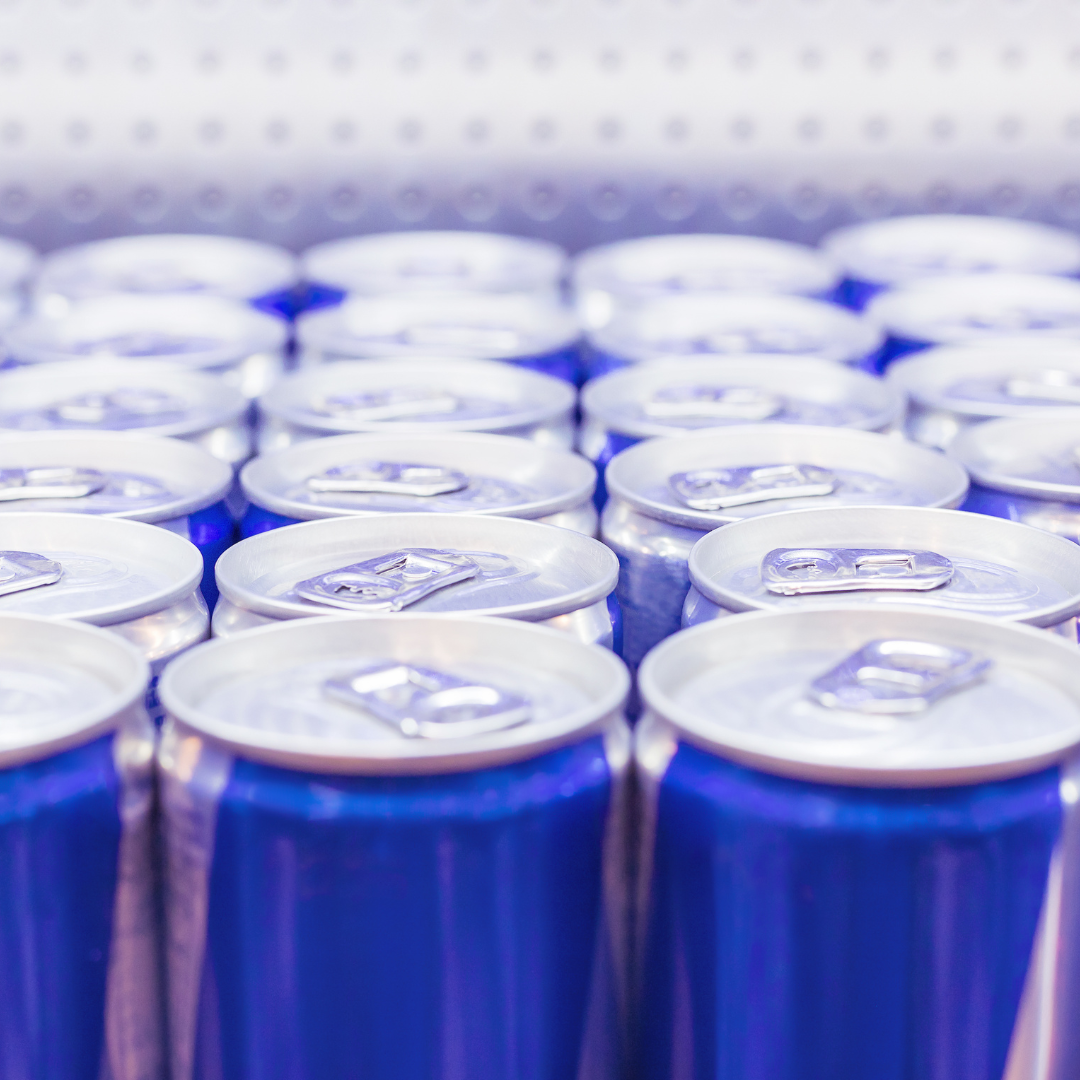Are energy drinks bad for your teen?
What parents need to know about the risks

Updated December 2, 2025 • Medically reviewed by Dr. Katie Knight
Medically reviewed by Dr. Katie KnightIn this article
Quick summary
- New UK rules will soon make it illegal to sell high-caffeine energy drinks to under-16s
- This is something that medically is a good idea, as these drinks can disrupt sleep, mood, school focus, and even blood pressure
- No type of energy drink is “healthy” – natural caffeine sources like tea are safer if necessary

If you’ve noticed your teen heading out with energy drinks during exam season or cracking one open first thing in the morning, you may feel a little bit concerned, or just be unsure whether they’re good or not.
Energy drinks seem to be everywhere right now, with loads of teens drinking them!
In fact, one-third of children aged 13 to 16 years consume one or more of these drinks each week.
These fizzy cans with flashy labels promise quick energy, but more and more parents – and now the UK government – are asking: are they actually safe?
What’s happening in the UK: is it illegal for under-16s to drink energy drinks?
Not quite.
The UK government is moving ahead with a ban on selling high-caffeine energy drinks to under-16s.
High-caffeine energy drinks refer to those containing more than 150 mg of caffeine per litre – this will include many of the common well known energy drink brands.
The law will apply to retailers, vending machines, cafes, and online shops.
The idea is to protect kids’ health, sleep, teeth, and school performance.
Parents and health experts have welcomed the move – they point to rising health concerns, including obesity, anxiety, poor concentration, and dental decay linked to these drinks.
Although this ban will mean they cannot buy them legally, the law doesn’t ban teens from drinking them if they get them another way.
Are energy drinks very unhealthy?
They can be, yes, especially for teens.
Teens are more sensitive to caffeine, and energy drinks often exceed safe limits.
Energy drinks are typically loaded with caffeine and sugar, which can lead to:
- Jitters, poor sleep, mood swings, and classroom hyperactivity or crashes
- Spikes in blood pressure and heart rate, possibly increasing long-term cardiovascular risk
- Neuropsychiatric effects like anxiety, panic attacks, attention issues, and even seizures in extreme cases
- Dental enamel erosion and risks to gut health from acidity and sugar
Which energy drink is healthy?
Truthfully, no energy drinks are a good choice for teens, especially those high in caffeine.
Even “sugar-free” options may still carry high caffeine content and additives not suitable for young bodies.
If your teen needs a caffeine boost, a plain cup of tea is safer, as it doesn’t contain the intense combo of stimulants, sugar, and acids that energy drinks do.
Safer alternatives to energy drinks
Here are healthier ways to help your teen boost their energy:
- Help them get enough sleep, as proper rest is the best energy booster
- Water, smoothies, and herbal teas are much gentler picks to stay hydrated throughout the day
- Balanced meals containing protein, whole grains, and fruit help sustain energy longer
- Managing stress through mindfulness, breaks, or movement helps more than caffeine crash fixes
It may be useful to have a chat with your teen about energy drinks if you’ve noticed them drinking them a lot.
Ask what they like about them, share how they affect mood or sleep, and suggest swapping in healthier choices one step at a time.
Ultimately it’s about encouraging balance
Energy drinks might seem like an easy solution for tiredness or exam prep, but they’re often a short-term fix leading to unintended side effects.
With the new UK restrictions, teens under 16 will find it harder to access high-caffeine drinks.
Hopefully guidance and encouragement at home can help them build lasting, healthy habits without this having a huge impact on their daily habits.
luna is here to help you and your teen stay informed – and check out our teen sleep tips that will (hopefully) make for more restful sleep, and less of a need for energy drinks in the first place!
How we created this article:
luna's team of experts comprises GPs, Dermatologists, Safeguarding Leads and Junior Doctors as well as Medical Students with specialised interests in paediatric care, mental health and gynaecology. All articles are created by experts, and reviewed by a member of luna's senior review team.
Sources:
Hopkins Medicine "Energy drinks and kids" | Accessed 05.09.25
https://www.hopkinsmedicine.org/health/wellness-and-prevention/energy-drinks-and-kidsGov UK "Ban on selling high caffeine energy drinks to boost kids health" | Accessed 05.09.25
https://www.gov.uk/government/news/ban-on-selling-high-caffeine-energy-drinks-to-boost-kids-healthWe'd love to keep in touch!
Sign up to our parent newsletter for emails on the latest teen trends, insights into our luna community and to keep up to date
By signing up, you are agreeing that we can use your email address to market to you. You can unsubscribe from marketing emails at any time by using the link in our emails. For more information, please review our privacy statement.